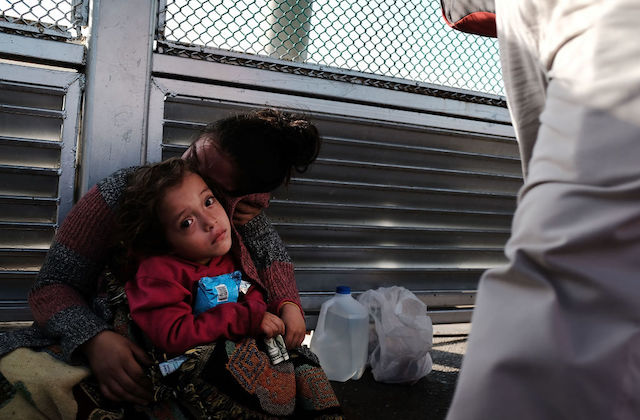Supreme Court Allows Trump Administration to Target Low-Income Earning Immigrants

On January 27, the Supreme Court of the United States gave the Trump administration a green light to implement changes to the Inadmissibility on Public Charge Grounds immigration policy, also known as the public charge rule. The president can now punish immigrants who have applied for government services including Medicaid, the Supplemental Nutrition Assistance Program and housing assistance by denying them a green card or a path to legal permanent residency.
Reports Reuters:
The justices, on a 5-4 vote, granted the administration’s request to lift a lower court’s injunction that had blocked the so-called public charge policy while litigation over its legality continues. The rule has been criticized by immigrant rights advocates as a “wealth test” that would disproportionately keep out non-White immigrants.
The court’s five conservative justices, including Chief Justice John Roberts and two justices appointed by Trump, carried the day. The court’s four liberal justices said they would have denied the administration’s request.
According to Reuters, U.S. District Judge George Daniels of New York spoke harshly of the rule before issuing the injunction in October, stating it was “repugnant to the American Dream” and a “policy of exclusion in search of a justification.”
As Colorlines wrote previously:
The policy currently states that immigrants who want to become permanent residents have to first prove they won’t become “public charges,” or burdens to the United States…. U.S. Citizenship and Immigration Services—an agency within the Department of Homeland Security—seeks to broaden the policy by expanding the definition of a public charge.
When the policy change first went public, The Washington Post reported:
Factors that can count against a green card applicant include having “a medical condition” that will interfere with work or school; not having enough money to cover “any reasonably foreseeable medical costs” related to such a medical condition; having “financial liabilities”; having been approved to receive a public benefit, even if the individual has not actually received the benefit; having a low credit score; the absence of private health insurance; the absence of a college degree; not having the English-language skills “sufficient to enter the job market” or having a sponsor who is “unlikely” to provide financial support.
The Trump administration can now implement the new rule across the country, with the exception of Illinois, where it has been blocked by a lower court, Reuters reports. And although the high court has allowed the public charge rule to go into effect, New York’s Second U.S. Circuit Court of Appeals still has to issue a ruling on the Trump administration’s appeal of the injunction. Reuters reports that the Second Circuit is reviewing the case “on an expedited basis,” with legal arguments expected to begin by mid-February.
*Note: Article has been updated to reflect that the public charge rules stands in the way of legal permanent residency, not citizenship.
